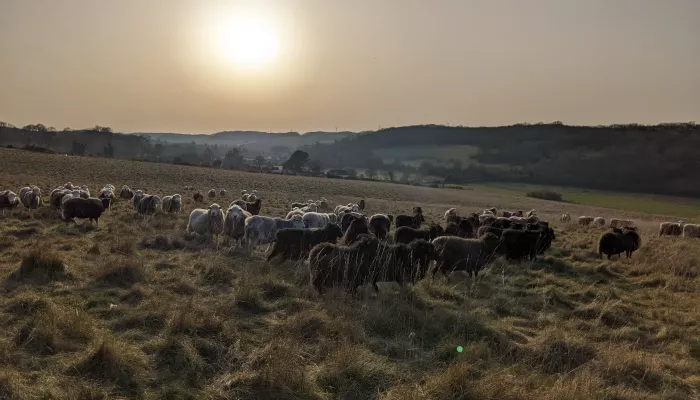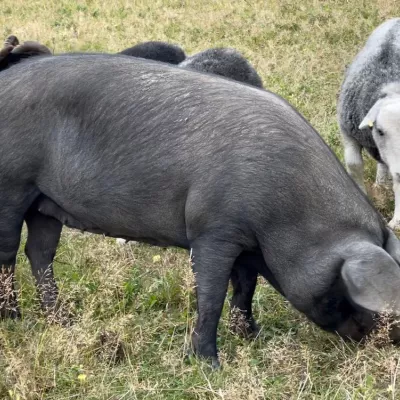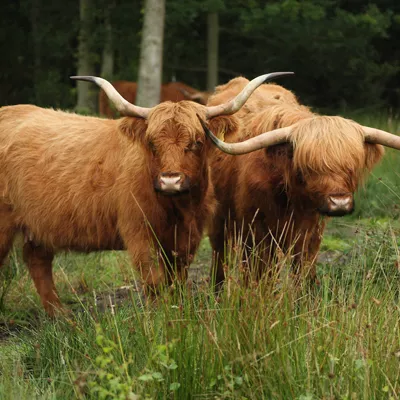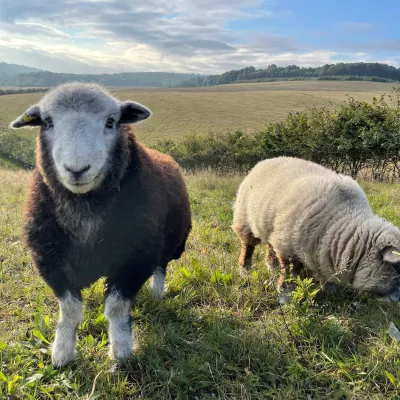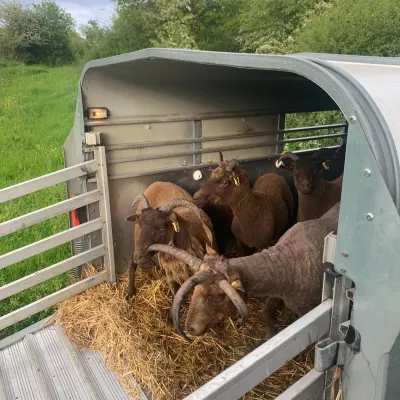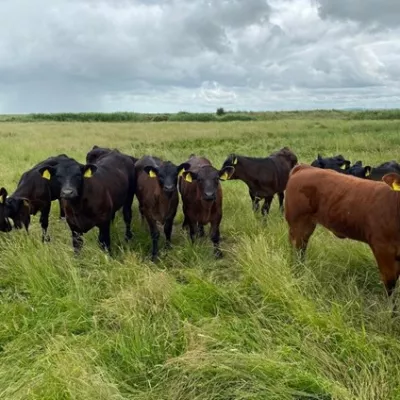Commitment: 1-2 days a week
Frequency: Weekly
Location: Across Kent (e.g. Oare Marshes, Nashenden, South Swale, South Blean, Ham Fen, and Wraik Hill)
Our livestock play a huge part in looking after our nature reserves. Their grazing is essential in providing places for our wildlife to live. All our livestock need checking every day to ensure they are healthy, safe and happy. Full training on how to behave around livestock and what to look out for will be provided.
*We currently have low coverage for nature reserves local to Rainham, Sittingbourne, Faversham and Whitstable. Please do get in touch if you can help in these areas.
Overview of the role
All livestock checks should aim to take place before 12 noon and during daylight hours. Kent Wildlife Trust’s Health & Safety policies specifically state no lone working in the hours of darkness.
The time it takes to complete welfare checks varies greatly from day to day. All sites are different both in size and variety of animals to seek out and find. The average time it takes to complete a check is about 1 hour, not including travel time, but some sites like Oare Marshes routinely take 2 hours or more.
Training will take place outside in small groups and for this reason we may require you to attend on a separate day and location to the one you have applied for.
Benefits to volunteering and training opportunities
- Livestock checker induction training
- Access to beautiful nature reserves
- Reasonable travel expenses paid
Days and times we'd like you to be available
We would like people to volunteer 1-2 days per week. This volunteering role is rota based and therefore a level of flexibility is desirable but not essential.
After your initial enquiry you will be allocated a regular day each week. This rarely varies but can be changed if livestock moves around. We also welcome people checking multiple local sites or swapping days to cover other volunteer absences.
Experience and skills required
You must be 18 years old or over to apply for this role.
Please bear in mind this role requires training before starting, a smartphone and a high level of commitment due to the animal welfare implications. Often the livestock checkers are required to travel to remote sites therefore, your own transport is essential.

